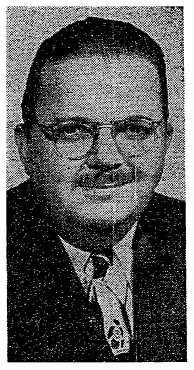
“Pathetic Fallacy” hit the airwaves on February 2, 1948 as one of the episodes of Quiet, Please. The show ran for two years (1947-1949) and was, according to some accounts, the best overall horror/science fiction radio series. It was written by Willis Cooper (1899-1955, grainy photo at right), the man who created another of old time radio’s greatest horror/drama shows, Lights Out (1934-1947), and who also wrote the screenplay for the film Son of Frankenstein (1939). “Pathetic Fallacy” is a rather uncharacteristically lighthearted story for Quiet, Please, albeit that it speaks to Man’s relationship to one of his Machines, but in this instance a super-calculating computer that develops a rather familiar sort of personality…and begins making errors, or so it appears. Or is the mathematical gibberish spouted by this advanced machine perhaps another language altogether, with a man’s task (with a woman’s help!) but to understand/decode it?
“Pathetic Fallacy,” while humorous and plainly-rendered in its front story, nevertheless intimates in its subtext several thought-provoking questions relevant to contemporary philosophical thought regarding the future of Artificial Intelligences, not least of which is, Can machines know love as we do, or might they come to know their own type of love for their flesh-and-blood creators? Last week we presented Stephen Vincent Benet’s dark, pessimistic look at Man’s relationship with his machines in “Nightmare.” “Pathetic Fallacy” envisions quite the opposite relationship.
While America went about its daily business in the eye of the storm between two wars (WW II and Korea), SF fans went about their usual passion, reading SF stories in their favorite magazines, a few notable examples from 1948 being “Don’t Look Now” by Henry Kuttner (Startling Stories, March), “He Walked Around the Horses” by H. Beam Piper (Astounding Science Fiction, April), Judith Merril’s classic first story “That Only a Mother” (ASF, June), “Mars is Heaven!” by Ray Bradbury (Planet Stories, Fall), and “In Hiding” (ASF, November) by the all but forgotten Wilmar H. Shiras, who, with this story and four others appearing in ASF, would comprise her wonderful 1953 novel Children of the Atom.
Play Time: 28:54